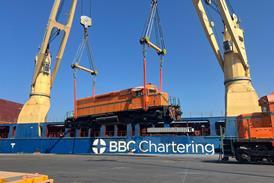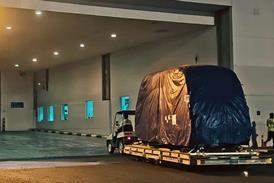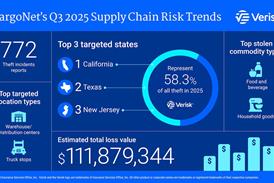July 31 - Shipowners will soon be forced to address new and expensive regulations to deal with ballast water, says the UK P&I Club
The Ballast Water Management Convention 2004 requires shipowners to understand compliance standards, develop a ballast water management plan, select and install a treatment system and train personnel how to use it. Ships will be subject to surveys and inspection to maintain certification.
There is strong support for the Ballast Water Management Convention, a result of the damage caused to the environment by invasive alien species, depletion of fish stocks and the cost of controlling these effects.
The Convention requires ratification from 30 states, accounting for 35 percent of the world's commercial tonnage. As of July 29, signatures amounting to 29 percent of that tonnage have been acquired with the remainder expected shortly.
The International Maritime Organization (IMO) has issued guidelines to facilitate the implementation and interpretation of the Convention by all countries.
The cost of compliance to shipowners will be very high, says the UK P&I Club. A ballast water treatment system is estimated to cost between USD0.5 million and USD4 million per vessel, in addition to ancillary costs such as developing a ballast water management plan, dry-docking and installation.
To further complicate matters there are two standards of Convention compliance. The ballast water exchange standard (BWE) does not require the ship to install a treatment system but will be phased out by 2019. The ballast water performance (BWP) standard does require the installation of such a treatment system.
Alternatives to the BWE and BWP compliance methods must deliver equivalent levels of protection to the environment, human health, property and resources.
Parties signed to the Convention can impose additional measures on ships to prevent, reduce or eliminate the transfer of harmful aquatic organisms and pathogens through a vessel's ballast water and sediment. Even those vessels that comply with the Ballast Water Convention 2004 standards may not meet the more stringent standards set in the USA and other countries. Shipowners that trade in these jurisdictions must therefore install ballast water systems that conform to even stricter standards.
A ballast water management plan must be tailored to each ship and include a description of the system, how it is operated, safety procedures for the ship and crew, and how ballast and sediment on board is processed and disposed of. A designated ballast water management officer must ensure a record of all operations is recorded in a ballast water record book, which must be onboard for inspection by authorised officers. The plan must be in the working language of the crew and be simple, realistic and easy to use by all those involved in the ballast water management process.
The vessel's flag state will also require surveys of the ship's construction, equipment and water management system to ensure compliance with the Convention's requirements.
A Party state will be responsible for enforcing the Convention for vessels operating under its flag, and for those ships entering its jurisdictional waters. Under terms of the Convention, states can establish sanctions that should be sufficiently strong to discourage violations. Although, there is a concern that the application, interpretation and enforcement of the requirements and sanctions imposed by vary from country-to-country.
Jacqueline Tan, senior claims executive at Thomas Miller P&I, said: "The high economic costs to ship owners, introduced by the Convention, coupled with a lack of confidence that the proposed equipment and procedures can effectively tackle the adverse effects, probably explains why the rush to ratify the Convention has slowed down.
"While MEPC 651 and the revised implementation schedule have given owners breathing space, it would still be prudent for them to get to grips with the Convention's requirements."
1 MEPC 65 - The Marine Environment Protection Committee (MEPC) of the International Maritime Organization (IMO) which met for its 65th session from 13 to 17 May 2013.

















